ESG Spotlight Report - Race, Ethnicity and Public Equity: A Global Snapshot
Sustainalytics has published a new ESG Spotlight Series report, Race, Ethnicity and Public Equity: A Global Snapshot, which presents an analysis of racial and ethnic issues linked to listed companies’ operations, supply chains and the societal impacts of their business activities. Our research finds that although a growing number of firms are disclosing diversity and anti-discrimination initiatives, management gaps persist and related controversies are on the rise.
2020 Material Risk Engagement Annual Report
Material Risk Engagement helps investors promote and protect their long-term value by engaging with high-risk companies on their financially material ESG issues. This inaugural Material Risk Engagement annual report covers ten months since its launch in March 2020. Read the report to learn more about:
10 for 2021: Investing in the Circular Economy
This report aims to support investors interested in gauging environmental, social and governance (ESG) risks and opportunities in the global food value chain. We survey key subindustries – from agrochemicals, agriculture and aquaculture to packaged food, food retail and restaurants – in search of solutions that may support the principles of the circular economy (CE). These principles include minimizing waste and pollution, extending the use-phase of products and ecosystem regeneration. Some of the key insights found in the report are:
Combining ESG Risk and Economic Moat
In this report, we look at the potential synergies between Sustainalytics’ ESG Risk Ratings and Morningstar’s Economic Moat Rating. As a part of our research, we constructed a back-testable investment strategy and portfolio by segmenting stocks with low ESG risk and a wide moat. While both metrics worked independently, they performed exceptionally well in combination.
Understanding ESG Incidents: Key Lessons for Investors
Our Thematic research report, Understanding ESG Incidents: Key Lessons for Investors, provides a complete exploration of Sustainalytics’ incidents collection framework and offers comprehensive insight into company activities that generate undesirable social or environmental effects.
How Investors Integrate ESG: A Typology of Approaches
This report, How Investors are Integrating ESG: A Typology of Approaches, classifies ESG integration approaches along three dimensions: management (who is integrating ESG), research (what is being integrated), and application (how the integration is taking place). The authors then used the typology to identify six prevailing approaches of ESG integration in the market today.
Pre-engagement study on labour rights in food supply chains
Labour rights issues in food supply chains are crucial matters to investors, both in terms of compliance with international human rights norms and national legislation, and from the material point of view of securing future supplies. With this background, GES, in collaboration with AP7, The Seventh Swedish National Pension Fund, conducted a pre-study to provide input for the development of a new engagement initiative.
Beware of Bears: A Look Back at the Downswing of 2018
Overlaying Sustainalytics’ ESG Risk Ratings onto the FTSE AW Index, we found that 24 percent of the benchmark’s market cap was rated as having high to severe levels of ESG risk. In addition, over the course of Q4 2018 the negligible to low ESG risk companies outperformed the benchmark by 55 basis points. Our sample portfolio containing 300 best-in-class ESG performers would have returned 77 basis points more than the benchmark in Q4.
Water Stewardship Engagement
The Water Stewardship and Risk Engagement combines both scale and detail, and covers the food and beverage, mining and garment sectors, which are associated with a high level of water risk. This engagement links water policy and practices in these three sectors to the targets of Sustainable Development Goal 6 (to ensure the availability and sustainable management of water and sanitation for all)
Gaining Ground: Corporate Progress on the Ceres roadmap for Sustainability
This report, Gaining Ground: Corporate Progress on the Ceres Roadmap for Sustainability, evaluates how well 613 of the largest, publicly traded U.S. companies are integrating sustainability into their business systems and decision-making. The report— a collaboration between Ceres and Sustainalytics—assesses corporate progress across the four strategic areas first outlined in 2010 in the Ceres Roadmap for Sustainability: Governance, Stakeholder Engagement, Disclosure and Performance.
Combatting Child Labour: Investor expectations and corporate good practice
GES has engaged the cocoa industry for many years to increase its effort in tackling the issue of child labour. As a part of its long-term engagement, GES published its second public report on the issue, including investor expectations and a corporate benchmark of leading cocoa and chocolate companies.
10 for 2018: ESG Risks on the Horizon
In 10 for 2018, we focus on the ESG issues we anticipate could pose significant risks for investors. The ESG issues in focus fall into four broad themes: water management, climate change, consumer protection and stakeholder governance. Learn more about the stories behind these issues below.
ESG Transparency Poland (English Report)
Since 2012, GES together with the Polish Association of Listed Companies, a self-government organization of companies listed on the Warsaw Stock Exchange, has been involved in an educational project ESG analysis of companies in Poland aimed at increasing disclosure and transparency of reporting on non-financial indicators.
Investor’s Guidance on Children’s Rights Integration
To establish how, and to what extent, investors are considering children’s rights in their policies and practices, GES also worked with the Global Child Forum, a Swedish not-for-profit foundation, to survey asset owner PRI signatories in 2014, 2015 and 2017.



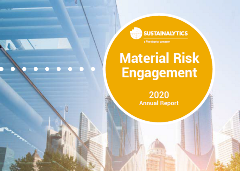
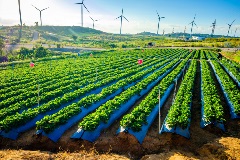




.tmb-small.jpg?Culture=en&sfvrsn=98d0d2f9_2)
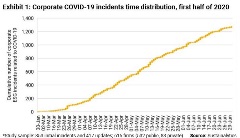
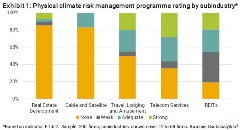
.tmb-small.png?Culture=en&sfvrsn=fd535425_2)
.tmb-small.png?Culture=en&sfvrsn=2b395014_2)
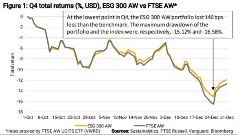
.tmb-small.png?Culture=en&sfvrsn=12e8d376_2)
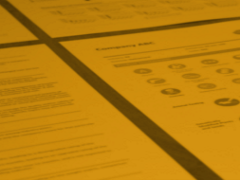


f6f40ef6-31ad-42df-b35f-128241ea958e.tmb-small.png?Culture=en&sfvrsn=3c436c0f_2)
